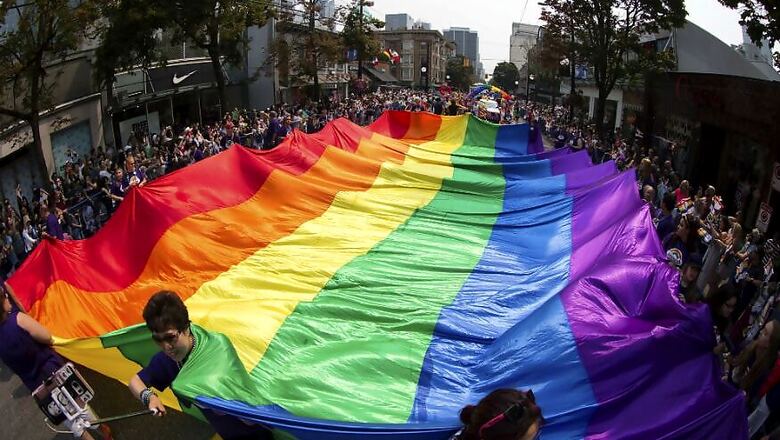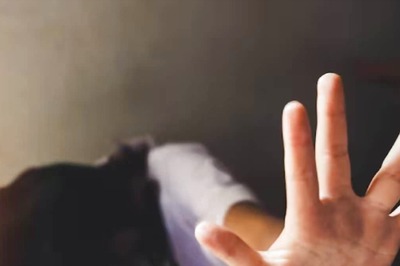
views
New Delhi: The Supreme Court reignited the homosexuality debate on Monday, saying a Constitution Bench will review its 2013 judgment upholding the validity of Section 377 of the IPC which criminalises gay sex.
A bench comprising Chief Justice Dipak Misra and Justices AM Khanwilkar and DY Chandrachud said the issue arising out of Section 377 required to be debated upon by a larger bench.
Section 377 of the IPC refers to 'unnatural offences' and says whoever voluntarily has carnal intercourse against the order of nature with any man, woman or animal, shall be punished with imprisonment for life, or with imprisonment of either description for a term which may extend to ten years, and shall also be liable to pay a fine.
The bench was hearing a fresh plea filed by one Navtej Singh Johar seeking to declare Section 377 as unconstitutional to the extent that it provides prosecution of adults for indulging in consensual gay sex.
Senior advocate Arvind Datar, appearing for Johar, said the penal provision was unconstitutional as it also provided prosecution and sentencing of consenting adults who are indulging in such sex.
"You can't put in jail two adults who are involved in consenting unnatural sex," Datar said and referred to a recent nine-judge bench judgement in the privacy matter to highlight the point that the right to choose a sexual partner was part of fundamental right.
The relook comes months after some judges on a nine-judge Constitution Bench, which had held Right to Privacy as a fundamental right, denounced discrimination on the basis of sexual orientation.
During the historic Right to Privacy hearing in August, Justice Sanjay Kishan Kaul had said that relationship and lifestyle were the individual’s choices. “It is an individual’s choice as to who enters his house, how he lives and in what relationship. The privacy of the home must protect the family, marriage, procreation and sexual orientation which are all important aspects of dignity."
A two-judge bench had in 2013 ruled that Section 377 of the Indian Penal Code will continue making gay sex — “irrespective of age and consent" — an offence.
The court had held that Section 377 did “not suffer from any constitutional infirmity" and that it was for Parliament “to consider the desirability and propriety of deleting Section 377 from the statute book or amend it. Under Section 377, voluntary “carnal intercourse against the order of nature with any man, woman or animal," is punishable with imprisonment from 10 years to life.
This judgment had turned the clock back on the rights of homosexuals in the country, as the Supreme Court had set aside the historic 2009 Delhi High Court judgment that decriminalised gay sex by holding that Section 377 of the Indian Penal Code violated the principles of equality and non-discrimination in the Constitution.
The review petition filed by Naz Foundation against this judgment was dismissed in 2014. But the case is still alive since the curative petition is still pending before the top court.
(With PTI inputs)



















Comments
0 comment